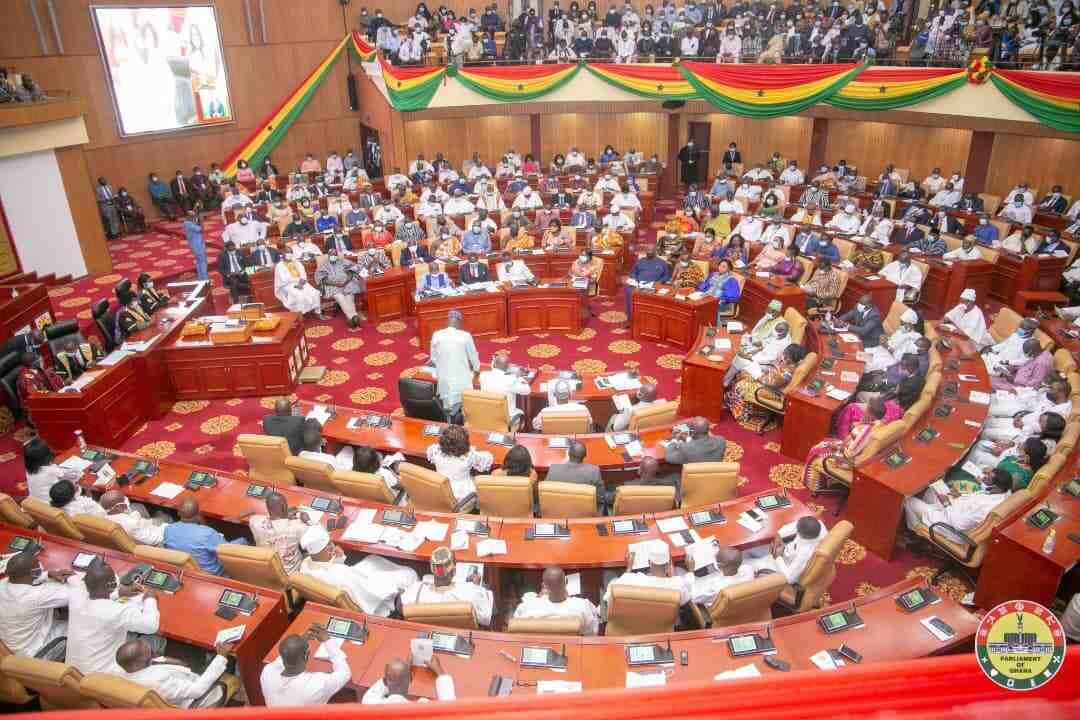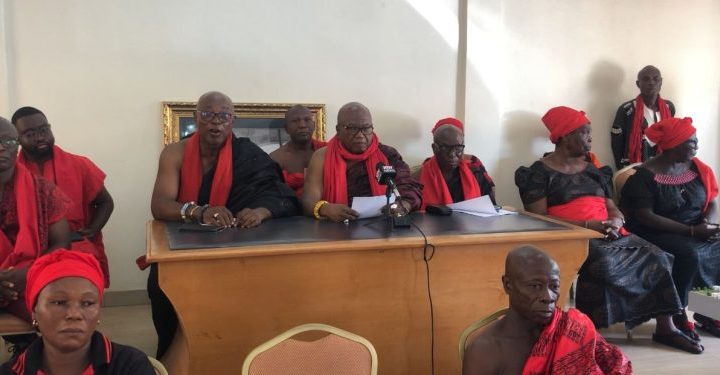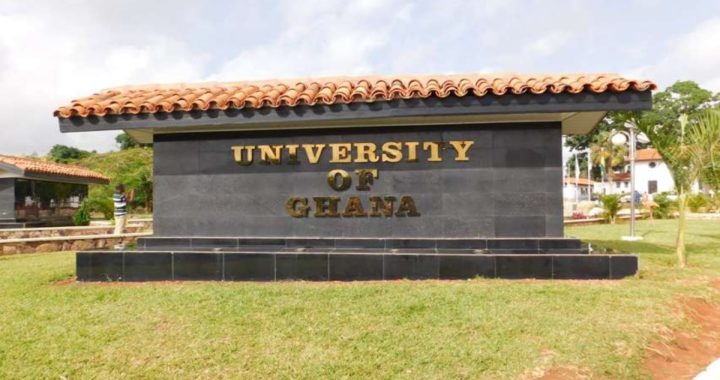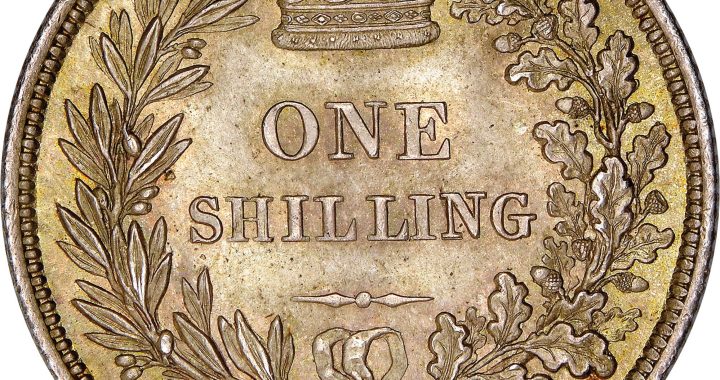Parliament Resumes Sitting Today

Parliament of Ghana is gearing up to commence its first session of the fourth term on today, Tuesday, February 6, 2024.
In an announcement released on February 5, 2024, Parliament stated, “The First Meeting of the Fourth Session of the 8th Parliament is scheduled to start on Tuesday, 6th February, 2024 at 10:00 am prompt. During this meeting, a total of 82 Bills are expected to be presented to the House.”
The agenda includes crucial bills such as the Aged Persons Bill, 2023; Advertising Council Bill, 2023; Consumer Protection Bill, 2023; Public University Bill, and the Ghana Road Fund (Amendment) Bill, 2023.
READ ALSO: King Charles Diagnosed With Cancer
Additionally, the House will deliberate on twelve bills currently at the committee level, including the Affirmative Action (Gender Equality) Bill, 2023, under the purview of the Committee on Gender and Children, and the Social Protection Bill, 2023.
Private member’s bills like the Office of the Special Prosecutor (Amendment) Bill, 2021, and Citizenship (Amendment) Bill, 2023, will also be addressed before the House adjourns for recess ahead of the upcoming general elections.
The Parliament of Ghana is the cornerstone of the country’s democratic governance, comprising a unicameral legislature and the Council of State. Its unicameral structure consists of Members of Parliament (MPs) who are elected to represent constituencies across the nation. This setup ensures that the voices and interests of citizens are heard and addressed at the national level. The Council of State, on the other hand, serves as an advisory body to the President, providing counsel on various national issues and representing diverse sectors of society.
Functionally, the Parliament of Ghana undertakes several key roles. Firstly, it exercises its legislative authority by crafting laws, amending existing legislation, and repealing outdated statutes. Through rigorous debate and voting processes, MPs deliberate on proposed bills, ensuring that the laws enacted reflect the evolving needs and aspirations of the Ghanaian populace. Moreover, Parliament serves as a vital oversight mechanism, holding the executive branch accountable for its actions. MPs scrutinize government activities, ensuring transparency, and adherence to democratic principles.
Representing the interests of their constituents forms a fundamental aspect of an MP’s role. By engaging in parliamentary debates, participating in committees, and advocating for policies that benefit their respective constituencies, MPs act as the voice of the people within the legislative arena. Additionally, Parliament plays a pivotal role in financial matters, including the approval of government budgets and expenditures. Through thorough scrutiny, MPs ensure that public funds are allocated judiciously and utilized for the benefit of all citizens.
The composition of Ghana’s Parliament reflects its commitment to democratic principles and inclusivity. Members of Parliament are elected through a combination of direct and proportional representation, ensuring broad-based participation and representation. This diverse composition fosters robust debate, promotes accountability, and enriches the legislative process with varied perspectives and experiences. Together, these elements underscore the significance of the Parliament of Ghana as a vital institution in the country’s democratic framework, driving progress, and advancing the welfare of its citizens.
Send Stories | Social Media | Disclaimer
Send Stories and Articles for publication to [email protected]
We Are Active On Social Media
WhatsApp Channel: JOIN HERE
2024 BECE and WASSCE Channel - JOIN HERE
Facebook: JOIN HERE
Telegram: JOIN HERE
Twitter: FOLLOW US HERE
Instagram: FOLLOW US HERE
Disclaimer:
The information contained in this post on Ghana Education News is for general information purposes only. While we endeavour to keep the information up to date and correct, we make no representations or warranties of any kind, express or implied, about the completeness, accuracy, reliability, suitability or availability with respect to the website or the information, products, services, or related graphics contained on the post for any purpose.



 Asogli State rejects renaming Ho Technical University after Ephriam Amu
Asogli State rejects renaming Ho Technical University after Ephriam Amu  KNUST Pro Vice-Chancellor makes donation of $10,000 To GReF
KNUST Pro Vice-Chancellor makes donation of $10,000 To GReF  Lydia Alhassan provides free transport for UG level 100 students
Lydia Alhassan provides free transport for UG level 100 students  How to buy UG Admission Voucher with Momo/Shortcode
How to buy UG Admission Voucher with Momo/Shortcode  The Poll Tax Ordinance of 1852
The Poll Tax Ordinance of 1852  Top 5 Universities in the Netherlands for Masters Studies
Top 5 Universities in the Netherlands for Masters Studies